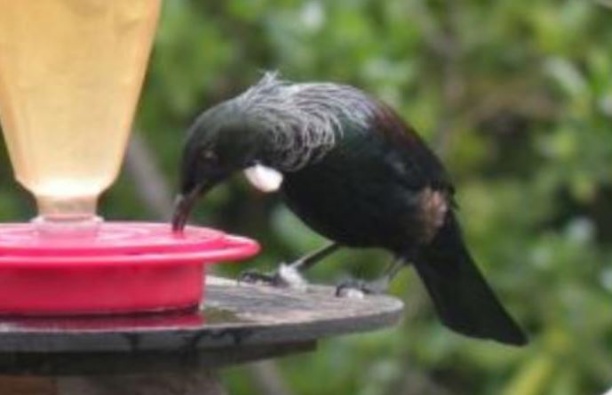Follow
the podcast on


Birds and supplementary food
Don’t forget our feathered friends as the days begin to really shorten. Food is becoming scarce, unless you’ve planted a heap of trees and shrubs that provide nectar and honeydew to keep the nectivores happy - and fruit for a different segment of the bird population.
Bread is not a great food for birds, it can cause stomach troubles. And it certainly doesn’t help our native species. Budgie seeds will mostly help the non-native species such as sparrows and finches - and rodents!
Another point about feeding birds in your garden is that you’ll need to keep going till spring. Your generosity is something the birds rely on and when you stop, there will be consequences for the artificially-high populations created by extra feeding.
I tend to target nectar feeders in winter assistance: things like Tui and bellbird. Silver-eyes are especially helpful in the garden, they are insect eaters, specialising in scale insects, mealybugs, aphids, psyllids, whitefly and a heap more of those quite damaging garden pests.
Two types of feeding stations are of importance here:
* Sugar water (not honey water) in a container the birds can feed from.
* Lard blocks or dripping in an old onion bag or in a small, metal “cage” where the birds can hang from. This last contraption feeds a wide range of birds that over-winter in my garden. Replenish frequently and remember to place the feeders in a spot out of reach from neighbourhood cats.
A source of water might also be handy as – even in winter – birds need water.
My goal is to get the largest flocks of silver-eyes on the lard blocks and sugar-water stations throughout winter and right into spring, when the silver-eyes start to disperse to go breeding. You might think you will have “lost” them from the garden, they are getting very secretive around nesting time, but they will remember your place as a heaven full of food. So in spring and summer they’ll come and do the pest control business for you by scouting the scale insects and aphids from your plants, to feed their kids.
LISTEN TO AUDIO ABOVE
Take your Radio, Podcasts and Music with you









